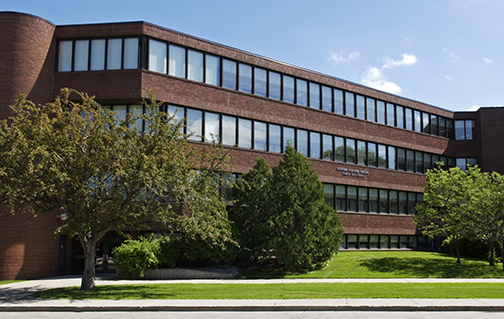Physics is the most fundamental and exact of the physical sciences. Its laws are basic to deep understanding in all of technology, and in many fields of study, such as astronomy, chemistry, engineering, materials science, photonics, biology, medicine, geology, and environmental science. Physicists often end up in a wide range of leadership positions. Notable examples include Jimmy Carter, Elon Musk, Steven Wolfram, Douglas Hofstadter, and Angela Merkel.
The Department of Physics has growing undergraduate and graduate programs. Yet, its size remains comparatively small, allowing personalized interactions between students with all of its 12 faculty members. Not only do students participate in research projects early on, they often become authors in peer-reviewed publications and present their results in the regional and national conferences and workshops. In addition, our students are highly engaged; they regularly participate successfully in the University Physics Competition and contribute actively to various outreach activities.
The Department of Physics has a strong research focus on three fields: materials (especially soft materials), computational physics, and physics education research. While this represents only a small subset of all existing physics fields, our focus makes us competitive and successful on the national level and beyond. Students can choose among a number of curricular options that prepare them for industrial, governmental, and academic careers. The Fargo/Moorhead urban area contains three colleges with a physics program. Courses can be taken in each college through the Tri-College University. This increases the number of available courses to a level typical for large universities only.
A prospective physics major is generally expected to have taken physics, chemistry, and mathematics courses. Computer courses can also be useful. Incoming students should normally be ready to start learning calculus. Some of our incoming students have already taken AP courses in physics or mathematics. Note, however, that deficiencies in any of these subjects may be remedied in the freshman or later years at the University.
The most popular curricular option in the Department of Physics is the standard physics major. Also popular are our two double major programs in Physics and Mathematics as well as in Physics and Computer Science. Starting in fall 2017 we offer a new double major in Electrical and Computer Engineering and Physics. All these programs allow well-prepared students to complete the requirements for both majors in four years by taking advantage of the close connections between physics, mathematics, computer science, and engineering. In addition, we offer a physics major with a focus on optical science and engineering. The optical science and engineering option, which is the only regional program of this type, includes an interdisciplinary optics/photonics sequence of courses taught by the Department of Physics and the Department of Electrical and Computer Engineering using a state-of-the-art optics teaching laboratory. Finally, highly qualified students can earn both a Bachelor’s and Master’s degree in physics by enrolling into the Accelerated Masters program in their junior year.
All of our physics majors (including the double majors and physics majors with the optical science and engineering option) take introductory courses in classical mechanics, computational physics, electricity and magnetism, optics, thermodynamics, quantum mechanics, and modern physics, as well as selected specialized courses such as photonics, lasers, or condensed matter physics. In addition, all physics majors get involved in research projects with faculty, typically in fields like materials (including bio- and polymer physics), computational physics, and physics education research. Two dedicated courses allow students to receive credit for their research efforts. Any of our curriculum options prepares students for graduate work in physics or related fields and subsequent employment in industry, government, or academia. Physics graduates have excellent job perspectives because they are widely valued as creative and persistent problem solvers who are often able to step into leadership positions.
IMPORTANT DISCLAIMER: This guide is not an official curriculum. This guide is a sample four-year degree plan of how students might plan this major with other degree requirements to complete their education in four years.Student plans will vary from this sample due to a variety of factors, such as, but not limited to, start year, education goals, transfer credit, and course availability. To ensure proper degree completion, enrolled students should utilize Degree Map and Schedule Planner in Campus Connection and consult regularly with academic advisors to ensure graduation requirements are being met.

